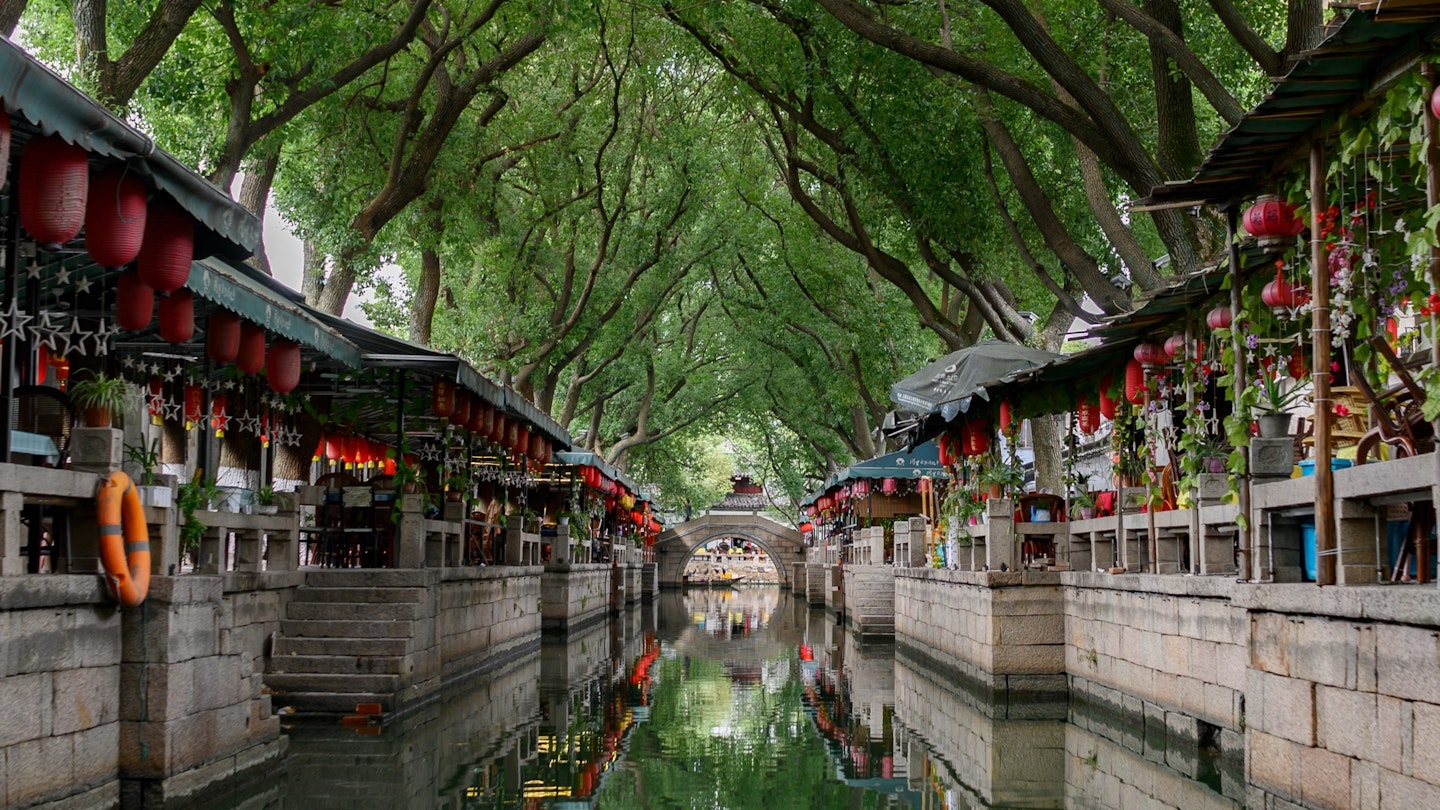‘Venice of the North’, ‘Venice of the East’, ‘The American Venice’. The magnificent Italian city draws constant comparisons worldwide, from Alesund in Norway to Melaka in Malaysia. However, if anywhere truly holds a candle to Venice, it may well be Suzhou in China. This ancient water town, west of Shanghai, features arch bridges and wooden balconies hanging above trickling, tinkling canals. Moreover, Marco Polo, the famed Venetian explorer, visited Suzhou in the 13th century, reportedly awed by its uncanny resemblance to Venice.
A Landscape Frozen in Time
It’s no wonder Suzhou made an impression on Marco Polo. Five-and-a-half thousand miles from Venice, he had stumbled upon a mirror image of his home. The waters bustle at night, with fleets of wooden ships ferrying goods and visitors through the city’s labyrinth of canals, just as they have for thousands of years. On their banks, a hive of trade and commerce buzzes under the dim glow of lantern light.

An Epicentre of Silk
In the 13th century, Polo noted Suzhou’s remarkable architecture and affluence, stating it contained “merchants of great wealth… accomplished traders and most skilled craftsmen.” This wealth derived primarily from the silk industry. Visitors today can still observe artisans at work, deftly removing caterpillars from their cocoons to produce fine silk. This craftsmanship has maintained its legacy since nearly the dawn of recorded history.
Visitors can learn more at the Suzhou No 1 Silk Factory, a historical factory that continues the tradition of silk production while serving as a museum showcasing ancient silk-spinning machinery.

A Familiar Way to See the Sights
Life jackets aside, the traders and merchants of Suzhou remain largely true to their ancient roots. While a sprawling metropolis does encompass much of the old city’s land area, visitors can lose themselves in narrow aisles of water and stone in historic districts like Tongli and Mudu. Here, the clink of teacups and the clamour of kitchens echo from riverside cafes, creating a vibrant atmosphere.

Navigating the Waterways
Not every boat here is used for fishing. For around 30 yuan, travelers can hire a boatman to experience these ancient towns similarly to how Polo did. While he may have exaggerated the number of bridges, several hundred do exist and are best seen from the water. You can easily spot their ferries by the sight of neon orange life vests on board.

The Joys of Yuhang Street
The wood-framed Nanyuan Teahouse in the Tongli district is the oldest teahouse on the southern portion of the Yangtze; serving as a window to the past and also as an entrance to modern joys lining the cobbled streets. Cafes and vendors crowd Yuhang Street, where a round of Tsingtao beers can be enjoyed alongside Polo’s historical stone bridges. Players at local arcades can prove their aim with darts to win giant stuffed animals, creating an exciting atmosphere.

Away from the Canals
By the time of Polo’s visit, a temple had been marking the summit of the largest hill in Suzhou for over 1000 years. Polo would have climbed the same stairs towards the crest of Tiger Hill to witness the leaning seven-storey Cloud Rock Pagoda and hear tales about rumored treasures beneath it.

A More Contemporary Connection
For all the comparisons to Venice noted by Polo, contemporary visitors find one addition to the list: the crowds. While Suzhou is not a primary destination for international tourists, it has become a domestic tourism hotspot, with visitors flocking to the sites during weekends and public holidays. Consequently, the city can take notes from the challenges faced by Venice due to its popularity, hoping to preserve its charm in the process.





